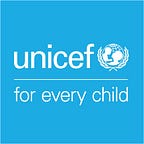The online/offline mirror
Children need protecting from online sexual exploitation in an online world that often reflects society-at-large.
What happens in the online world is often a reflection of society-at-large. Information and communication technologies, including the use of the Internet and mobile devices are revolutionizing children’s access to information, yet predisposing them to online victimisation. Worldwide, children make up one-third of all Internet users. Protecting them is an urgent global priority.
The dangers that children face in their homes, schools and communities are often mirrored online. In El Salvador, many live in conditions of social and economic vulnerability, perpetuating a cycle of poverty, violence and exclusion. A man holds his son in San Salvador, the capital.
But the country has made advances in creating policies focusing on the prevention of online violence against children and a special unit in the National Police to respond to potential cases. At a school in Soyapango, police facilitate a training session on Internet safety.
Still, increasing numbers of children are using social media to maintain virtual contact with friends, but also find themselves at increased risk of sexual solicitation, exposure to sexually explicit content, and cyberbullying. In Santa Tecla, a UNICEF-supported workshop on gender-based violence.
Violence against children is often carried out by people that the child already knows and should be able to trust, but is frequently perpetrated by strangers online. The complexity of social dynamics and multiple sources of risks pose many challenges. A busy intersection in Soyapango.
“There is so much violence in the neighbourhoods, the only way [to] have fun, to forget all those things, is Facebook,” says Patricia, [NAME CHANGED], 14, an advocate for the responsible use of social media from Soyapango, in a hallway at her school.
Lack of adult supervision is a contributing factor. “If parents were more involved with their children, and knew what they are doing… and try to guide them in life… maybe that would reduce the number of incidents,” she says. Patricia’s father accompanies his daughters home from school.
In Madagascar, children face online solicitation on social media networks through easily accessible and inexpensive data plans. Moreover, sexual exploitation of children in travel and tourism is widespread in some disadvantaged communities. A street in Nosy Be.
Accepting strangers as friends on social media platforms is a worrisome trend. Due to financial constraints, Charmela, 16, can no longer attend school. She spends a lot of time online, frequently receiving sexually explicit messages from strangers. At an Internet café with a friend.
The Internet is used by predators who seek vulnerable children through social media networks. Carine, [NAME CHANGED], 13, attends school but her mother, who works at a local market, barely makes enough money to pay her daughter’s school fees. Carine does homework in Nosy Be.
Carine, 13, enjoys communicating online with her many friends. She recently received 50 Euros from a French man whom she describes as her online boyfriend, grooming her for a sexual encounter. At home in Nosy Be, widely known for sexual exploitation of children in travel and tourism.
Widespread impunity for trafficking networks is one of many challenges. The Malagasy Government has established an integrated child protection system to help vulnerable children. Police officers monitor calls from victims of child abuse at a UNICEF-supported centre in Antananarivo.
And in El Salvador, the government has implemented child protection policies with improved support to child victims of violence along with newly trained prosecutors and police officers in online crime detection. A session on Internet safety by police officers in Soyapango.
Yet, children remain largely unaware of the potential dangers of their online activity. Andrea, [NAME CHANGED], from Santa Tecla, was 16 when a man approached her online. After she refused to send him nude photographs, he threatened her life. Now 18, she is an advocate for online safety.
In Fortaleza, Brazil, Rondiney, now 20, had his first paid sexual encounter as a minor.
“I was 15 and he was forty-something,” he said. He currently works as a telemarketer and says: “I want to be proud of having done something good that makes my whole family proud too.”
“The advice I’d give to a 15-year-old boy, would be for him to take advantage of being 15 because it’s the best age for enjoying life, being a teenager, with so many good things in the world.” Rondiney, 20, in Fortaleza.
Learn more about #ENDviolence against children.
This photographic documentation was produced with the support of the WeProtect Global Allliance.
